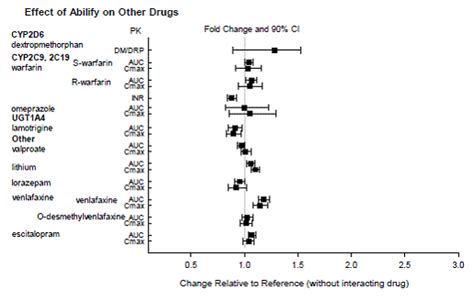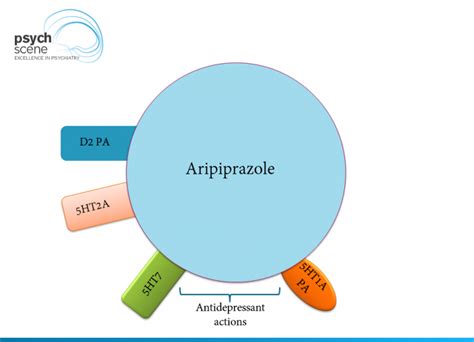Intro
Discover Aripiprazole side effects, including common and rare symptoms, interactions, and warnings, to ensure safe usage and minimize risks of anxiety, depression, and mood disorders treatment with this antipsychotic medication.
Aripiprazole, commonly known by its brand name Abilify, is a medication primarily used to treat schizophrenia, bipolar disorder, and major depressive disorder. It belongs to a class of drugs known as atypical antipsychotics, which work by altering the actions of chemicals in the brain. While aripiprazole can be effective in managing symptoms of these conditions, it is not without its side effects. Understanding these side effects is crucial for patients and healthcare providers to make informed decisions about treatment.
The importance of recognizing and managing side effects cannot be overstated. Side effects can range from mild and annoying to severe and potentially life-threatening. They can impact a patient's quality of life, adherence to treatment, and overall health outcomes. Furthermore, the presence of side effects may necessitate adjustments to the treatment plan, such as changing the dosage or switching to a different medication. Given the complexity of psychiatric conditions and the individual variability in response to medications, a thorough discussion of aripiprazole's side effects is essential.
Aripiprazole's mechanism of action, which involves partial agonism of dopamine D2 and serotonin 5-HT1A receptors and antagonism of serotonin 5-HT2A receptors, contributes to its therapeutic effects but also to its side effect profile. The drug's impact on various neurotransmitter systems can lead to a wide range of side effects, affecting different bodily systems. This article aims to provide a comprehensive overview of the side effects associated with aripiprazole, including common, less common, and rare but potentially serious effects.
Aripiprazole Common Side Effects

Management of Common Side Effects
Managing common side effects often involves lifestyle adjustments and, in some cases, additional medications. For example, patients experiencing nausea or vomiting may benefit from taking aripiprazole with food. Those with insomnia may need to establish a consistent sleep schedule and avoid caffeine and electronics before bedtime. In cases where common side effects are severe or persistent, the healthcare provider may consider reducing the dosage or switching to a different medication.Aripiprazole Less Common Side Effects

Monitoring for Less Common Side Effects
Monitoring for less common side effects involves regular check-ups with the healthcare provider and, in some cases, laboratory tests. Patients should be aware of the signs and symptoms of these side effects, such as dizziness upon standing, changes in urination patterns, or unexplained weight loss, and report them promptly. Early detection and management of less common side effects can prevent more serious complications.Aripiprazole Rare but Serious Side Effects

Emergency Response to Serious Side Effects
In the event of a serious side effect, such as NMS or an allergic reaction, emergency medical services should be contacted immediately. Patients and caregivers should be educated on the signs and symptoms of these conditions and the importance of seeking urgent medical help. Prompt intervention can significantly improve outcomes and prevent long-term damage.Aripiprazole and Special Populations

Adjusting Treatment for Special Populations
Treatment with aripiprazole in special populations often involves adjusting the dosage and closely monitoring for side effects. For example, children and adolescents may start with a lower dose that can be gradually increased based on response and tolerability. Pregnant women should be monitored for any changes in their condition or the development of side effects. Elderly patients may require more frequent monitoring of their physical and mental status due to the potential for increased sensitivity to the medication.Aripiprazole Interactions with Other Medications

Managing Medication Interactions
Managing interactions between aripiprazole and other medications involves careful planning and monitoring. Patients should inform their healthcare provider about all medications they are taking, including over-the-counter drugs and supplements. The healthcare provider can assess the potential for interactions and make necessary adjustments to the treatment plan, such as changing the dosage of aripiprazole or the other medication, or recommending alternative treatments.Aripiprazole Withdrawal and Dependence

Tapering Off Aripiprazole
Tapering off aripiprazole involves gradually reducing the dosage over a period of time. The rate of tapering can vary depending on the individual patient and the duration of treatment. It's crucial to work closely with a healthcare provider during this process to manage any withdrawal symptoms and adjust the tapering schedule as needed.What are the most common side effects of aripiprazole?
+The most common side effects of aripiprazole include dizziness, lightheadedness, nausea, vomiting, constipation, headache, anxiety, insomnia, restlessness, and weight gain.
Can aripiprazole cause serious side effects?
+Yes, aripiprazole can cause serious side effects, including neuroleptic malignant syndrome (NMS), tardive dyskinesia, and allergic reactions. These effects are rare but can be life-threatening and require immediate medical attention.
How should aripiprazole be discontinued to avoid withdrawal symptoms?
+Aripiprazole should be tapered off gradually under the guidance of a healthcare provider to minimize the risk of withdrawal symptoms. The rate of tapering can vary depending on the individual patient and the duration of treatment.
In conclusion, while aripiprazole is an effective medication for treating various psychiatric conditions, it is associated with a range of side effects. Understanding these side effects, from common to rare but serious, is essential for patients and healthcare providers to make informed decisions about treatment. By recognizing the potential for side effects and taking proactive steps to manage them, patients can maximize the benefits of aripiprazole therapy while minimizing its risks. We invite readers to share their experiences with aripiprazole, ask questions, or seek further information on this topic. Your engagement and feedback are invaluable in creating a supportive community for those affected by psychiatric conditions and their treatments.
